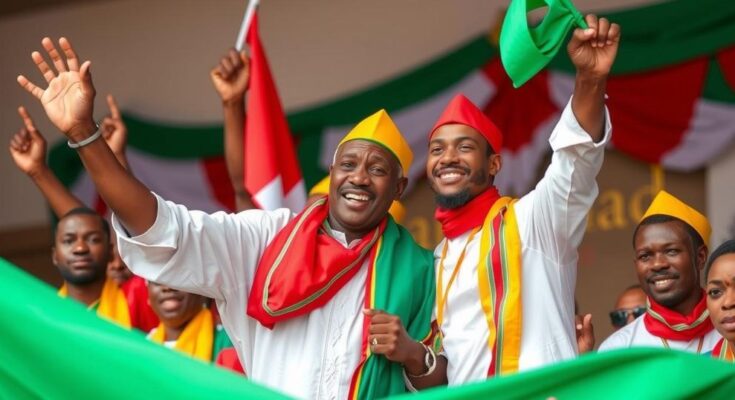Chad’s ruling Patriotic Salvation Movement party won 124 out of 188 parliamentary seats in the recent elections, which were boycotted by major opposition parties. With a turnout of 51.5%, this is Chad’s first parliamentary vote in over a decade, following the military transition initiated after Idriss Deby’s death. The opposition criticized the election as illegitimate, reflecting ongoing concerns about the country’s democratic process.
In the recently held parliamentary elections in Chad, the ruling Patriotic Salvation Movement (MPS) party emerged victorious, securing 124 of the 188 parliamentary seats available, according to provisional results announced by Ahmed Bartchiret, the head of the electoral commission. This election, boycotted by over ten opposition parties, saw a voter turnout of 51.5%. It marks the first parliamentary election in Chad in more than a decade, taking place amidst a complex political landscape following the military takeover by Mahamat Idriss Deby in 2021 after the death of his father, Idriss Deby Itno, who had ruled for thirty years. Deby had asserted that the election would lead to a long-awaited decentralization of power to local levels. However, the main opposition, which had labeled the election a “charade,” remains skeptical about its legitimacy and has yet to release an official response to the results.
Chad’s political environment has been tumultuous, especially after the transition to military rule following the death of longtime President Idriss Deby Itno. Mahamat Idriss Deby’s ascent to power was marked by the promise of leading Chad towards a more democratic governance framework. The parliamentary election represents a significant stage in this transition, yet the boycott by major opposition parties raised concerns regarding the integrity of the electoral process. The backdrop of ongoing security threats, including attacks by Boko Haram, complicates the nation’s journey to stabilization and development.
In conclusion, the recent parliamentary election in Chad, dominated by the ruling party following a boycott by the main opposition, signals a consolidation of power for President Mahamat Idriss Deby. Despite claims of paving the way for local governance, significant skepticism remains regarding the election’s credibility and the future of democratic processes in Chad. As the nation addresses both political and security challenges, the implications of this election will be crucial for its governance and stability.
Original Source: www.seattletimes.com




